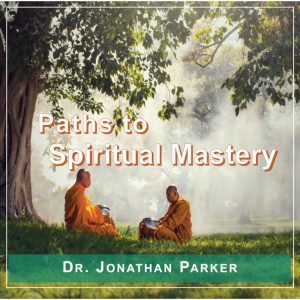
There is nothing that brings about more fulfillment than raising consciousness through spiritual transformation. There is no amount of physical accumulation or physical adventure which can yield the degree of inner satisfaction, joyfulness, happiness, and peace that are attainable through spiritual discoveries and awakening. That is certainly not to say that enjoying much of what physical life offers need be avoided in order to attain spiritual goals. In fact, there is much within physical life that augments the spiritual journey. This article focuses on how to achieve the spiritual transformations that bring about the heights of human experience.
1. First of all, spiritual transformation requires a great amount of commitment
-and this involves investments in time to learn what is necessary to bring about the life-changes a person is looking for and then following a disciplines to achieve it. Commitment is an outgrowth of desire and to be effective in a transformational process, a person must have a deep sustained desire as the spiritual path is a lifelong investment that yields ever-unfolding rewards.
One question I am often asked is how long the process will take and, of course, there is no single or simple answer to that question because each person has a different history and circumstances. I can say that the answer is in years not weeks or months. In some cases, it requires a lifetime of discoveries, but this is often what makes the journey thrilling. The reason for this is because it takes a considerable amount of time to unravel the many complexities that have clouded the subject. Thousands of religions have been spawned to explain what the spiritual process is and how to attain it, and because there is no actual truth meter built into a human being we are easily lead astray. So you must first be determined to sustain your focus long-term to discover and achieve the transformations you desire.
2. The Spiritual Path is One of Personal Development.
For those who are seeking spiritual “heights” and refinement, this is closely linked to personal development because it includes developing oneself across many dimensions such as setting and achieving goals, emotional mastery, expanding creativity, and sharing successes.
Mastery of any kind of spiritual endeavor such as prayer, reading and understanding sacred texts, or becoming proficient at learning some aspect of meditation or spiritual practice, are also aspects of personal development. It takes discipline to attain certain accomplishments so on your spiritual path broaden the context to include a well-rounded program of personal development.
3. Third, you must choose the high road.
Depending upon one’s religious orientation, there are many different approaches to spiritual disciplines, but regardless of a person’s path all spiritual journeys emphasize refining ones life morally and ethically while developing positive traits such as kindness, consideration, compassion, selflessness, patience, unconditional love, honesty, fairness, generosity, and a reverence for all life. This involves being mindful on a daily basis of thoughts, words, and actions. It is also a matter of choice. How do you choose to react to others? How do you choose to feel? What choices do you make to further the positive traits listed above?
4. Be willing to challenge your beliefs. Most religions have many rules to follow but these are the outer teachings which may have value and importance, but the depths of spiritual realization and discovery will only come from the deep work of delving into one’s core. This process is sometimes called “Self-Discovery” because it involves coming to understand what lies behind all beliefs and motivations. It takes a brave person to pursue this because it involves challenging a person’s most cherished ideas, and that can often seem to turn one’s world upside down.
One method of doing this is to make a list of what you believe to be true, and then ask yourself some questions. “What if that is not true?” That is not to say what you believe isn’t true, because whatever you believe you do believe is true and for you it probably is, but what if the opposite is true? Why do you believe it to be true? Is it possible it is not true? Is it possible that the belief is an arbitrary choice without absolute foundation? Could it be just yours or someone else’s opinion? Can you set that belief on a “shelf” for awhile and explore alternative beliefs to see if they might also have validity? Asking yourself these type of questions will challenge you to look into what makes your life what it is, and determines the directions you are heading.
5. The fifth and last point I want to emphasize in this article is one that is common to all the major religions and all spiritual path and that is to learn to let go of whatever you are holding on to. In a spiritual context this is often called surrender and it refers to releasing the grip of whatever holds you in the state you are in. It does not necessarily mean losing anything as it refers to an inner attitude of not being fixated on any position or holding any resistance to anything. The highest states of spiritual transformation lead to deep peace and acceptance, and that can only be attained when one is willing to let go of whatever they are holding that is keeping them from the experience. When you let go, the transformation happens automatically. That is why it is often said it comes through grace.
The question and challenge becomes how to let go because we often say we want to let go, but find it difficult to do or even determine what to let go of. The full answers to those questions lie beyond the scope of this article, but I have many audio programs and other articles that address this issue such as “Let Go of the Past” and the many additional resources on this Soul Resources page.


